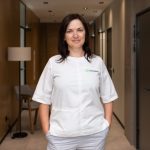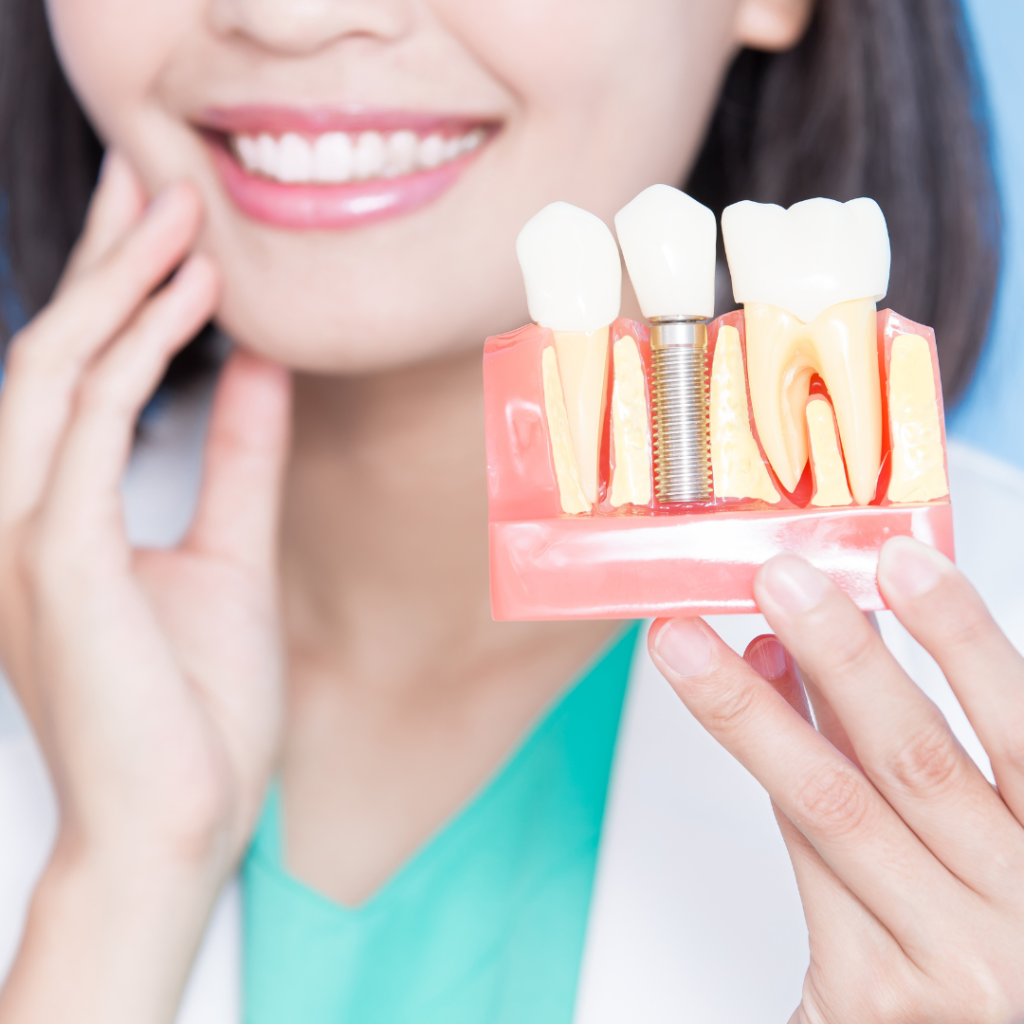Periodontitis: How to save your teeth and stop gum inflammation
Periodontitis is an inflammation of the tissues that hold the tooth in the bone (periodontium), with the gradual destruction of the connection between the jaw and the tooth. It is accompanied by bleeding and swelling of the gums, pain when chewing, bad breath, and tooth mobility. If the problem is ignored, deep periodontal pockets with pus form, which leads to loosening and loss of teeth.
According to the World Health Organization (WHO), severe forms of periodontitis affect approximately 19% of the world's adult population, which is more than 1 billion people. Timely intervention prevents complications – abscesses, bone lesions, lymphadenitis – and reduces the risk of vascular diseases and diabetes.
Astra Dent specializes in the treatment of periodontitis using advanced techniques. Doctors perform deep cleaning of gum pockets using ultrasound and laser, which allows to eliminate bacterial plaque and inflammation. Plasma therapy (PRF) is used for tissue regeneration. In difficult cases, curettage is performed to strengthen the connection between the tooth and the gum and prevent the progression of the disease.
Dentistry in Warsaw offers professional whitening, artistic restoration, implantation of lost teeth, correction of bite without braces using modern methods. Digital diagnostics are used to develop a personalized treatment plan. Specialists with 26 years of experience not only help get rid of gum problems, but also make the smile healthy, harmonious and attractive.
Why choose Astra Dent Warsaw for periodontitis treatment?
Periodontal inflammation is one of the main causes of tooth loss. The prevalence of the disease among the adult population ranges from 20% to 50%, depending on the region and assessment methods. In Poland, more than half of the adult population (62%) suffers from periodontitis. Modern methods allow you to stop inflammation, save teeth and restore gum health without surgical intervention.
Advantages of periodontitis treatment at Astra Dent in Warsaw:
- Experienced dentists. The dentistry employs certified periodontists with over 26 years of experience who possess modern treatment methods. If necessary, closed and open gum curettage, hydrodynamic and ultrasonic cleaning of periodontal pockets, deep mechanical root treatment are used. They undergo regular training in accordance with the protocols of the European Federation of Periodontology (EFP).
- Modern methods. Vector therapy is used using the Vector device, which allows you to effectively and painlessly remove bacteria from periodontal pockets, stimulate gum healing and avoid surgical intervention. Ultrasonic cleaning (scaling and deep curettage) eliminates subgingival plaque and tartar, reducing inflammation.
- International treatment standards. Astra Dent uses world-class periodontal therapy protocols – ITI (International Team for Implantology) and EFP (European Federation of Periodontology), which guarantees the effectiveness of the procedures and long-term results. Certified biomaterials for bone tissue regeneration are used: Bio-Oss® and Emdogain®, which allows you to achieve positive results even in the presence of bone defects.
Astra Dent offers a full cycle of treatment — from diagnosis to complete restoration of gum health. All procedures are performed on a "turnkey" basis, without referring to other specialists. You can undergo preventive teeth cleaning, treat inflammatory processes, restore bone tissue, and if necessary, install transparent aligners to align teeth or implants to restore the aesthetics of the dentition.
Causes of periodontitis
Poor hygiene, poor nutrition, structural features of the dento-jaw system, and bad habits are the main causes of periodontitis. In most cases, the disease is provoked by:
- Accumulation of plaque and tartar. Plaque is the main etiological factor in the development of the disease. Bacteria contained in plaque cause inflammation of the gums, which progresses to periodontitis.
- Poor oral hygiene. Insufficient or irregular brushing of teeth contributes to the accumulation of plaque and tartar, which increases the risk of periodontal inflammation.
- Genetic predisposition. Genetic factors can affect susceptibility to periodontitis. For example, certain genetic variations increase the risk of gingivitis, and then periodontitis.
- Smoking and an unhealthy lifestyle. Nicotine and other toxic substances in tobacco smoke negatively affect the blood supply to the gums and the body's immune response, which contributes to the progression of the disease.
- Diseases (diabetes, hormonal changes). Poor blood glucose control can lead to more severe gum disease. Hormonal changes, such as pregnancy or menopause, negatively affect the condition of the gums and increase the risk of inflammation.
People with malocclusion, crowding, and irregularly shaped teeth are more likely to suffer from periodontitis. Uneven load leads to microdamage to the periodontium and local inflammatory processes.
Symptoms of periodontitis
Periodontitis is a progressive inflammatory disease that destroys the tissues that support the teeth. In the early stages, the symptoms are subtle, but over time they become more pronounced:
- Bleeding gums. One of the first signals is bleeding when brushing your teeth or flossing.
- Bad breath. Chronic inflammation promotes the growth of anaerobic bacteria that produce hydrogen sulfide compounds. This leads to persistent halitosis (bad breath), which does not disappear even after brushing your teeth.
- Receding gums, exposure of tooth roots. Inflamed gums gradually move away from the teeth, exposing the roots. As a result, the sensitivity of the teeth to cold, hot and sour increases.
- Tooth mobility, the formation of pockets between the gums and teeth. As a result of the destruction of the connections between the gums and teeth, periodontal pockets appear, in which plaque and bacteria accumulate. This leads to loosening and spontaneous loss of teeth in advanced stages.
- Pain when chewing. Due to inflammation and weakening of the connections between the teeth and gums, discomfort or sharp pain may occur while eating. Patients notice that certain teeth seem "longer" or are displaced, which is a sign of periodontal destruction.
The disease does not go away on its own and can lead to irreversible changes. The earlier you start treatment at Astra Dent, the higher the chances of saving your teeth and avoiding surgical intervention.
Stages of periodontitis
Periodontitis develops gradually. At each stage, the disease affects the gums and bone tissue more and more. The earlier the problem is detected, the easier it is to stop its progression and save the teeth.
The following stages of periodontitis are distinguished:
- Gingivitis (initial stage). This is a reversible stage, when there is no destruction of bone tissue yet. At this stage, only the gums are inflamed: they become swollen, red, and bleed when brushing the teeth. There is no pain, and bad breath appears due to the accumulation of bacteria in plaque.
- Mild periodontitis – bone tissue destruction begins. Bacteria accumulate in the periodontal pockets (gaps between the gums and teeth), causing gradual tissue destruction. The teeth may shift, but there is no severe loosening yet.
- Moderate periodontitis – the gums recede greatly, tooth mobility appears. At this stage, the gums noticeably recede from the teeth, pockets of 4 to 6 mm are formed, in which infection accumulates. Visible exposure of the roots begins, the teeth become sensitive to temperature stimuli, discomfort appears during chewing.
- Severe periodontitis – teeth can fall out due to bone destruction. This is the most dangerous stage, at which there is a loss of more than 50% of the supporting bone tissue. Periodontal pockets become even deeper, the teeth are greatly displaced, moving even without load.
The disease progresses slowly, but the longer the treatment is postponed, the more difficult it is to stop it. Regular professional hygiene and timely therapy allow you to save your teeth even in the middle stages of periodontitis.
Periodontal treatment at Astra Dent Warsaw
Astra Dent specialists in Warsaw provide treatment according to international protocols (EFP, ITI, AAP) using modern technologies. A comprehensive approach allows you to eliminate inflammation, stop tissue destruction and prevent relapses.
Consultation with a periodontist and diagnostics
Treatment begins with diagnostics of the periodontal condition:
- probing of periodontal pockets – measuring their depth with a special periodontal probe (normal – up to 3 mm, with periodontitis – 4-12 mm);
- X-ray (panoramic or 3D image) – assessing the condition of bone tissue to detect hidden resorption;
- bacteriological analysis (if necessary) – to select effective antibacterial therapy.
Careful diagnostics helps to detect hidden periodontal pockets, assess the degree of bone loss and identify bacterial factors that contribute to the progression of the disease.
Professional teeth cleaning
Before the main treatment, it is necessary to remove bacterial plaque and tartar:
- ultrasonic cleaning (scaling) – removal of hard tartar with the EMS Piezon or DTE D7 device;
- AirFlow® – cleaning of pigmented plaque and biofilm using soda or glycine microparticles;
- polishing – elimination of microroughness on the enamel surface to slow down the re-accumulation of plaque.
Cleaning the oral cavity reduces the risk of relapse and increases the effectiveness of subsequent therapeutic procedures.
Vector therapy – a painless way to strengthen the gums
If you are concerned about bleeding gums, bad breath or periodontitis, Vector therapy may be the ideal solution. This is a modern method of cleaning the gums and tooth roots, which gently removes bacteria and plaque without pain and discomfort.
The procedure is performed using a special Vector device that works on ultrasonic waves. Thanks to this, cleaning is carried out gently, without excessive pressure on the teeth and gums. And the special medical suspension not only cleans, but also helps strengthen the enamel.
Curettage of periodontal pockets
The procedure is aimed at eliminating the inflammatory process, reducing the depth of the pockets and preventing further loss of bone tissue:
- closed curettage (for pockets up to 5 mm) – mechanical removal of infected tissues under the gums without an incision;
- open curettage (for pockets over 6 mm) – performed through microsurgical access for deep cleaning and restoration of the gums.
Curettage allows us to significantly reduce the depth of periodontal pockets, which helps stabilize the teeth and reduce the risk of relapse.
Antibacterial therapy
Depending on the severity of the disease, treatment can be local or systemic:
- local preparations (gel or applications) – Metrogyl Denta, Parodium or chlorhexidine gel, which are applied directly to the periodontal pockets;
- systemic antibiotic therapy (for aggressive course) – amoxicillin + metronidazole or doxycycline are prescribed for a course of 7-10 days;
- mouthwashes – use of antiseptic solutions (chlorhexidine 0.12%, Listerine) to reduce bacterial load.
To achieve maximum effect, antibacterial therapy is combined with professional cleaning, curettage and regular dental check-ups.
Bone regeneration
In case of significant bone loss, restoration methods are used:
- Guided Bone Regeneration (GBR) – use of biomaterials (Bio-Oss®, Emdogain®) to stimulate bone growth;
- Transplantation of own bone tissue (autotransplantation) or use of osteoplastic materials based on hydroxyapatite;
- PRF (Platelet-Rich Fibrin) – injections of platelet-rich plasma to activate cell renewal.
Timely procedure reduces the risk of tooth loss and creates conditions for stable orthodontic treatment with aligners in Warsaw.
Supportive treatment and prevention
Supportive therapy allows you to control the level of bacterial plaque, prevent the accumulation of tartar and minimize the risk of re-inflammation:
- control examinations every 3-6 months – monitoring the condition of the gums and repeated cleaning (if necessary);
- learning proper hygiene – selection of a toothbrush (ultrasonic, electric) and interdental tools (floss, brushes);
- bite correction (according to indications) – elimination of incorrect loading by installing aligners or splinting teeth.
Treatment of periodontitis at Astra Dent in Warsaw is based on accurate diagnostics, minimally invasive methods and long-term maintenance of the result. The use of international protocols, the latest technologies and an individual approach guarantees the preservation of the health of teeth and gums.
How to make an appointment?
Treatment of periodontitis begins with a professional examination and consultation with a specialist. Astra Dent patients can count on an individual approach, accurate diagnostics, and modern methods of therapy. It is easy to make an appointment:
- Phone: +48 533 599 552;
- E-mail: info@astradent.pl;
- Online form: on the website.
Working hours: Monday-Friday: 9:00-20:00, Saturday-Sunday: 9:00-18:00.
The consultation takes place at a time convenient for you, without queues and waiting. The appointment is quick, and the reception is in the comfortable conditions of modern dentistry. Take care of your gum health today – take the first step towards strong teeth and a healthy smile!

Last update:
11 October 2025, 15:13























